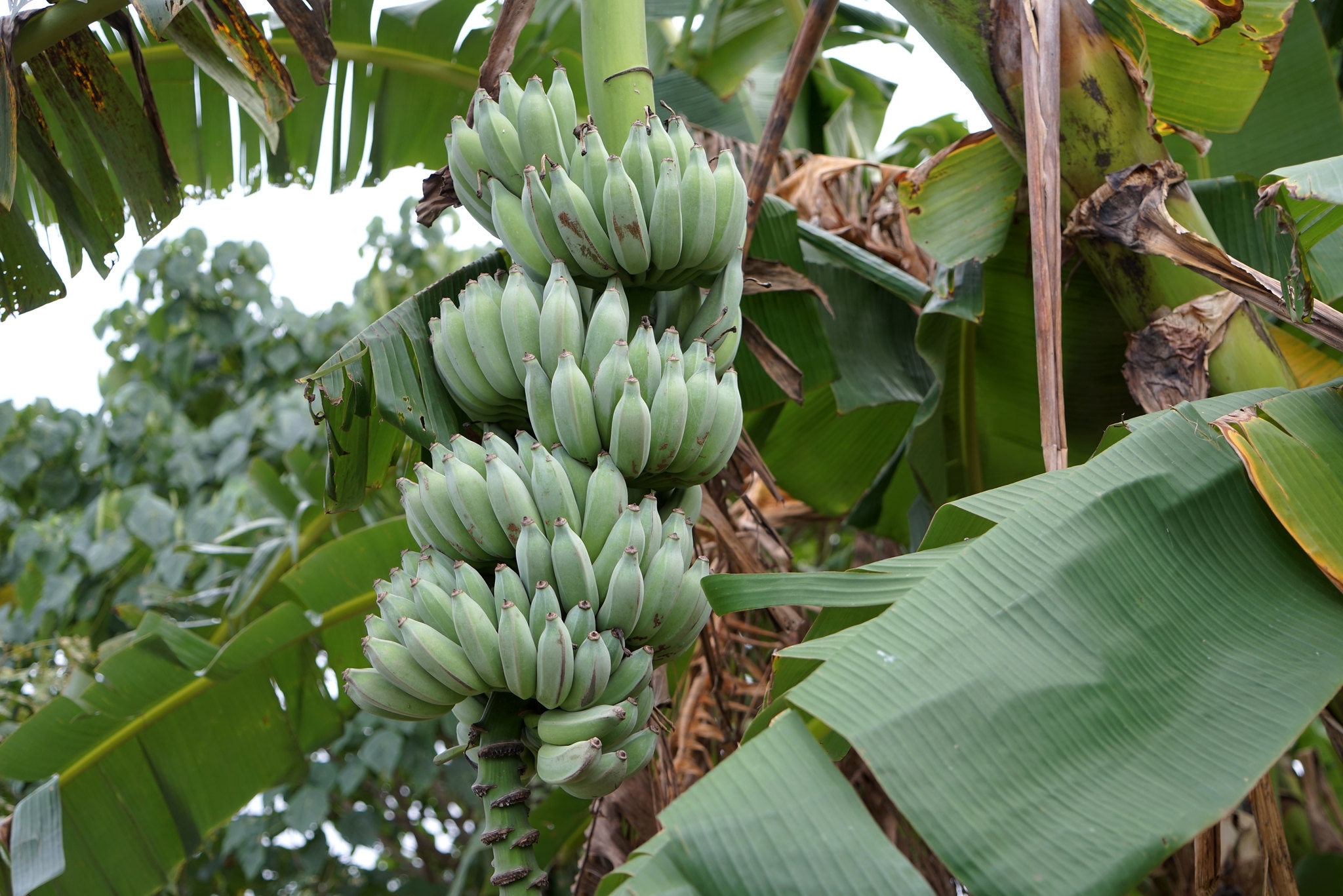
To strengthen regional phytosanitary pest prevention and management, and to support producers and health authorities in early decision-making in the face of potential pest outbreaks or incursions, by setting up the Andean Community Regional Phytosanitary Intelligence Centre (CRIFCAN). This will enable the generation of epidemiological data, technical capacity-building and the creation of technical teams, through an international advisory network, to respond to possible phytosanitary emergencies.
Fusarium wilt disease of banana, caused by the fungus Fusarium oxysporum f. sp. cubense (Foc), is the most destructive banana disease and is considered to be among the 10 most serious diseases in the history of agriculture. Foc TR4 is present in South America, having been detected in June 2019 in two banana farms in La Guajira, Colombia. Subsequently, new outbreaks were detected in 2021 in Sullana, Peru, and in Rio Negro, Magdalena, Colombia.
The regional significance of this threat has been recognized by the Food and Agriculture Organization of the United Nations (FAO). Foc TR4 pest management is particularly difficult, as, once the disease is present, it cannot be completely eradicated using methods and fungicides that are currently available. The fungus can remain in the soil for decades and can spread easily across borders through the movement of people and goods. It is currently considered a quarantine pest with a restricted area of distribution, which is causing considerable regional concern.
The best way to combat the disease is therefore to avoid its spread. Measures to prevent the entry of Foc TR4 require a regional approach and early detection. These measures must be taken by national official surveillance systems and also at the regional level.
In Andean Community countries, banana and plantain production is an important activity. Colombia and Ecuador are two of the world's largest exporters of bananas. Peru has managed to position itself in international markets with its organic and fair-trade production, and Bolivia mainly supplies the Southern Cone countries. Moreover, the sector is crucial in terms of food security and employment, and is considered to be a fundamental element of indigenous and Afrodescendent culture.
Thus, the entry of Foc TR4 is a threat of regional significance that can affect both the exports and production of Andean countries, limiting their access to foreign markets. The impact on trade across the Andean Community in 2020 is valued at USD 4.8 million, primarily affecting Ecuador, Colombia and, to a lesser extent, Peru and Bolivia.
In response to this phytosanitary emergency, the member countries of the Andean Community, following a high-level meeting of the Technical Committee on Agricultural Health (COTASA) - Plant Health (expanded to include State Ministers), expressed their concern over the Foc TR4 outbreak in 2019. The countries requested the General Secretariat of the Andean Community (SGCAN) to carry out a project to provide technical guidelines for the development of a monitoring centre, with the aim of building member countries' capacity to address and respond to pest outbreaks and incursions. The Phytosanitary Intelligence Centre is being proposed in response to that request, as a tool that will allow products to be created to evaluate, monitor and determine the geographical location of different phytosanitary events. By taking into account health information available from intelligence systems, it will serve as an additional tool to reduce the risks of pests and diseases being introduced into countries.
Andean countries have a regional phytosanitary intelligence centre to provide early warning of possible phytosanitary impacts on their crops
Based on a diagnosis of the Andean countries' current phytosanitary status, which will take into account the technology tools they have to deal with phytosanitary emergencies, a regional Phytosanitary Intelligence Centre will be designed and created. This will be accompanied by regional regulations that will govern the Centre's operation and by a commitment from the countries in that regard. The Centre will provide early warnings and real-time information to the National Plant Protection Organizations (NPPOs) of member countries, as well as to the private sector, thereby facilitating processes and procedures to treat pests such as Fusarium.
An international advisory network for pests of economic importance in the Andean Region
An emergency response team, the Regional Phytosanitary Group (Comando Regional Fitosanitario), will be created, composed of multidisciplinary personnel who will take action in a timely manner to contain quarantine pests. The specialists will go to the affected areas and will use communication strategies to prevent producers moving plant material outside the affected area. The member countries will apply biosecurity protocols and make recommendations to each other, based on a proposal to harmonize the documents used to manage risk in the event of a pest outbreak.
The pest surveillance, monitoring, risk and integrated management capacities of officials from Andean countries have been strengthened
A training plan will be implemented for NPPO and SGCAN officials on topics identified by member countries, as necessary. These topics will be determined at the diagnosis stage. Experience sharing and technology transfer activities will also be carried out, taking into account countries' successful experiences, as part of an exercise in Peru or Colombia simulating a Foc TR4 outbreak.